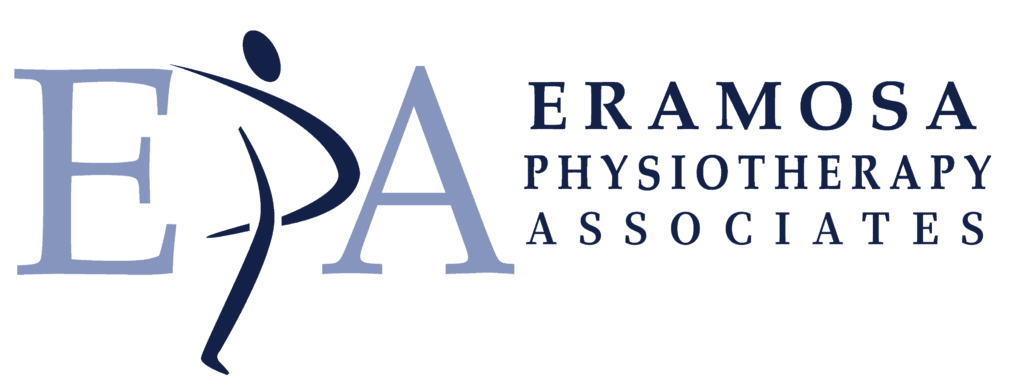Clarifying Menopause

Menopause is a natural process that marks the end of a woman’s reproductive years. Typically occurring in the late 40s or early 50s, menopause is characterized by a decline in estrogen and progesterone levels.
The definition of menopause is the day of the 12 consecutive months without a menstrual cycle. The 7-10 years leading up to menopause is termed perimenopause, while the first day after menopause and onwards is post-menopause. The average age of menopause in Canada is 51 years.
While there are a range of symptoms that accompany this stage, and no one’s experience is the same, it is important to understand that we can adopt a variety of lifestyle strategies to make the change easier. Research demonstrates that the more women learn about menopause, the easier the transition, so developing a healthcare team that can guide you in your journey is vital!
Women who are experiencing menopausal changes have access to many healthcare providers and resources which can provide knowledge and tools to allow women to take charge, leading to Your Path to Improved Health. Physiotherapy plays a key role in managing many changes of menopause, however; women need to recognize that there are many other resources where evidence shows positive results for women during this period of their lives.
• Cardio Changes • Musculoskeletal & Bone Health • Pelvic Health • Nutrition
Common Symptoms of Menopause:
- Fatigue
- Hair Loss/ thinning
- Oral health changes
- Changes in body odour
- Sleep disturbances
- Digestive issues
- Weight gain/ increase
- Dry mouth
- Brittle nails
- Dry eyes
- Anxiety and panic attacks
- Depression/ Mood Swings
- Feeling dizzy/ faint
- Poor concentration/ poor memory/forgetfulness
- Brain fog
- Headaches
- Increase in cholesterol
- Hot flushes/ night sweats
- Tinnitus
- Bleeding Gums
- Dry skin and fine lines
- Palpitations
Genitourinary syndrome of Menopause
- Vaginal dryness/itching/burning
- Urinary incontinence
- Pain with intercourse
- Pelvic Organ prolapse
- Urinary tract infection
- Changes to menstrual cycle
- Overactive bladder
- Muscle weakness and overactivity
Musculoskeletal:
The decline in estrogen and progesterone affects muscles, tendons, ligaments, and bones. During the perimenopause years along with normal age-related muscle loss (sarcopenia) which begins at the age of 30, women can lose an additional 10% of their muscle mass. This combined with an altered ability to control inflammation can result in an increase in joint pain, osteoarthritis and a variety of tendon-related issues that affect body parts such as the shoulder, back, elbow, hip and ankles and feet.
Osteoporosis:
1 in 3 women in Canada will fracture a bone because of osteoporosis. Estrogen decline is clearly linked to Osteoporosis, which is a condition that is characterized by reduced bone density, and an increased risk of fracture. Under normal circumstances bone remodels, where old bone replaces new bone, this process peaks at the age of 30 and then starts to decline, where new bone stores are not replaced, just maintained. The progression of osteoporosis is often symptom-free free with a diagnosis usually made after a fracture or DEXA bone scan. Although there are a variety of medications that can help reduce the progression of bone loss, resistance and balance training has emerged as an important lifestyle addition that women should include to help build and maintain bone and lean muscle mass.
Pelvic Health:
84% of women will experience the genitourinary syndrome of menopause (GSM). Unlike most of the other symptoms that accompany menopause, GSM, which is a collection of changes that occur to the bladder, vulva, vagina, bladder, and urethra is progressive and usually requires medical attention/treatment. Recurrent urinary tract infections, urinary and fecal incontinence, pelvic organ prolapse, pain with intercourse, vulvar dryness, itching and burning are some of the symptoms that women can experience. Pelvic Health Physiotherapists can help teach a client how to manage GSM symptoms with personalized treatment programs and should be included as part of a larger health care team that could include your family doctor, gynecologist or urologist.
Cardiovascular:
Before menopause, women have a lower risk for a cardiovascular event compared to their age-matched men. This is largely attributed to the protective effects of estrogen. Post menopause, the #1 cause of death in females is heart disease/attacks. Changes can occur in blood vessels making them less compliant and cholesterol levels may also be altered.
Vasomotor symptoms (VMS) (Hot flashes and night sweats) are common during menopause. The severity of these symptoms is associated with an increased risk for cardiovascular disease, metabolic syndrome, insulin-resistant non-alcoholic fatty liver disease, and osteoporosis.
Risk Factors for CVD include smoking, diabetes, stress, hypertension, high cholesterol, obesity, polycystic ovary syndrome, hypertension during pregnancy and premature menopause.
Lifestyle Factors:
Lifestyle adjustments are key to navigating menopause. These include:
- Improve Sleep
- Nutrition
- Exercise: Resistance, cardiovascular and balance training
- Manage weight
- Limiting alcohol
- Reduce Stress
- Yoga
- Cognitive Behavioral training
- Paced Breathing
- Mindfulness practices
Common Questions and Concerns


Are you simply and literally tired of not getting a good night’s sleep? Does this leave you irritable with your spouse, family or work colleagues? Often many women report that their lack of sleep has lowered their ability to “think”, multitask, feel productive and to be capable of managing their typical day-to-day routines.
Have you noticed a decrease in your sexual drive secondary to dryness, pain, poor body image and/or weight gain? Are you avoiding activity because of increasing episodes of incontinence, pelvic pain or prolapse? Is this leading to you just opting out of social events and becoming sedentary?
Are you normally interested in preventative health but are unaware as to where to start to prevent diseases related to menopause, like Osteoporosis and Heart Disease?
Treatment to support Menopause
We are here to help AND connect you to others that can support the challenges of Menopause through our Menopause collective.


Women managing menopause can take advantage of their resourcefulness, they can dedicate time for themselves, and they can use their clarity and drive to achieve the end goal of simply feeling better and more like themselves!


EPA and GWHA have a history of developing programs from sound evidence-based research, reassuring our clients that the services and products that we recommend are expected to make positive change.
Comprehensive care is delivered in our welcoming environment to support women, where we take the time to hear your whole story. We offer private individualized one one-on-one treatment so that you have the time with your health team members. Our team works hard to offer convenient appointment times to work around your lifestyle. Our providers offer extended office hours including early mornings and evenings, as well as virtual care opportunities. We continue to advocate for women and work together with their team of healthcare professionals which may include family doctors, specialists and other allied health.
Occupational Therapy Support for Menopause
Embracing Change: Occupational Therapists and Menopause


Hormone Havoc- OTs Can Help! Menopause brings hormone changes impacting mood, sleep, and well-being. Occupational Therapists provide coping strategies, stress relief, and relaxation techniques. From mindfulness to breathing exercises, they have holistic tools for balance.
Daily Activities- OTs Have Solutions! Facing hot flashes at work or adapting to energy changes? OTs help you find solutions. They make tasks easier through home and work adjustments. Ergonomic setups and energy-saving tips make every day smoother.
Exercise and Wellness- Staying active is key, but exercise preferences change during menopause. OTs guide personalized plans considering abilities and joint concerns. Discover new ways to stay strong with their motivation.
Self-Care and Mental Health- Menopause brings complex emotions. OTs offer a safe space for coping strategies. Creative activities, journaling, and support groups nurture emotional well-being.
Remember, menopause varies for everyone. An OT can make a difference in embracing this transition with confidence and self-love.
Let’s celebrate the incredible role Occupational Therapy plays in supporting us through the intricacies of menopause.
Book an appointment with GWHA OT Lara today!
Nutrition support for Menopause


Here are a few areas you can explore:
- Mindful Eating: Practice listening to your body cues for hunger and fullness. Try eating slowly, savouring your food and becoming aware of emotions during eating. This type of intuitive eating has been shown to improve body satisfaction, reduce disordered eating and help achieve a healthy weight.
- Nutrient intake: Nutrient needs fluctuate during menopause. It is important to monitor: Iron and B12 to match your blood losses if you are still menstruating. Calcium and Vitamin D are also key to maintaining healthy bones. Check with your Dietitian or Doctor if you have questions about your nutrient needs.
- Calorie Needs: Calorie needs tend to reduce as we age and become less active. Rather than restricting calories, use your hunger as a guide. Try filling half your plate with vegetables and fruits to reduce calories and add nutrients.
- Improved Digestion: Eat at regular intervals during the day. Increase fibre by choosing whole grains like oats, quinoa, barley and whole grain cereals and breads. Keep a food diary if you are experiencing gastrointestinal upset and look for the food combinations that work the best for you.
- Protein needs: increase during menopause as muscle and bone mass tend to decline. Research suggests that about 20 to 30 grams of protein per meal is needed to stimulate muscle building. Choose plant-based proteins like legumes, beans, nuts and seeds more often and lean meats, fish, eggs and lower-fat dairy.
- Anti-inflammatory foods: Choose healthy fats like avocado, olive oil, vegetable oil and the fat found in nuts and seeds and fatty fish like salmon and trout. Limit highly processed foods with added sugar and salt, like fast foods, desserts, commercial baked goods, candy, and ice cream.
Book an appointment with GWHA Dietitian Heidi today!
Resources:
- North American Menopause society: https://www.menopause.org
- Menopause in the workplace: https://menopausefoundationcanada.ca/menopause-and-work-in-canada-report
- Menopause Foundation of Canada: https://menopausefoundationcanada.ca
- Menopause and U (The society of obstetricians and gynaecologists of Canada): www.menopauseandu.ca
- Osteoporosis Canada: www. Osteoporosis.ca
- Heart and Stroke Foundation Canada
- Canadian Menopause society: https://www.sigmamenopause.com


